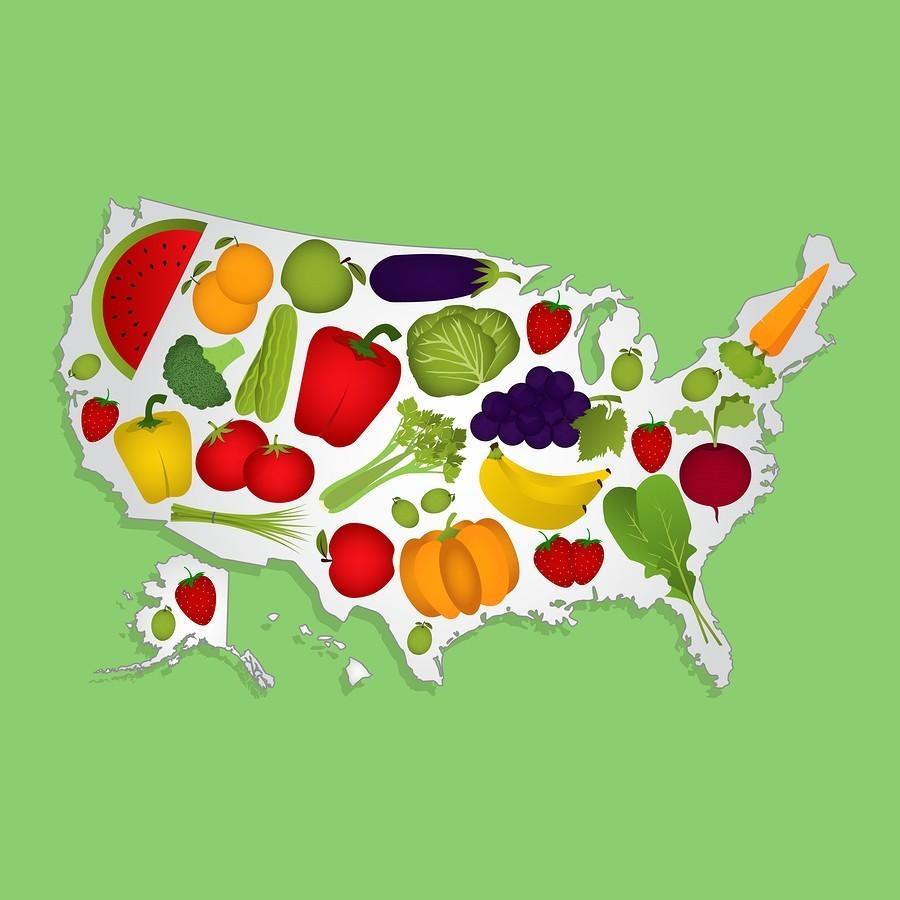A new study covering over 300,000 adults from the Centers for Disease Control and Prevention (CDC) found that few American adults meet the 2015 Dietary Guidelines recommendations for vegetables and fruit. Nationally, about 12% of adults eat enough fruit and a little more than 9% meet the vegetable goal.
AICR Research shows that eating a plant-based diet with plenty of vegetables and fruit can reduce risk for many cancers. The Dietary Guidelines also link a vegetable and fruit-heavy diet to a lower risk for chronic diseases like heart disease and type 2 diabetes. They recommend 1.5 – 2 cups of fruits and 2-3 cups of vegetables daily for adults.
The CDC researchers found that women, those with higher income and adults 51 or older were more likely to eat enough vegetables. Hispanics, women and 31-50 year olds most often met the fruit goal.
There were large differences between states, with West Virginia showing the lowest intake of vegetables (5.8%) and fruit (7.3%) and DC showing highest fruit intake (15.5%) while highest vegetable consumption was reported in Alaska (12%). You can see the statistics for your state here.

One troubling finding is that 18-30 year olds are the least likely to meet the recommendations – only 9% eat enough fruit, less than 7% meet veggie guidelines. Veggies, fruits and other plant foods contain fiber and tend to be low calorie, so eating more of these foods can help prevent weight gain over time. Diets low in fruits and veggies and high in foods with added sugar and fat are putting these young adults at risk for having weight gain, becoming overweight and developing obesity.
Vegetables and fruits are relatively low in calories. Whole grains and beans are rich in fiber, and their intake also helps with weight management. That is one reason AICR recommends filling at least 2/3 of your plate with plant foods. AICR research finds that excess body fat increases the risk of 11 types of cancers.
The authors of the report highlight what population groups are missing out on healthful vegetables and fruit, and recommend that states should implement evidence-based strategies to help adults eat more fruits and vegetables for better health, and to avoid chronic diseases.
Here are a few delicious ideas to help you find ways to fit more vegetables in to your diet.
- Stuff sandwiches with shredded carrots, sliced peppers, cucumbers, tomatoes, onions, spinach and dark lettuce leaves
- Add to chicken, tuna or seafood salad – grapes, raisins, dried apricots, celery, red onion, grated carrots
- Add extra veggies, beans and peas to spaghetti sauce, salads, soups, stews and casseroles
- Accent thin crust pizza (preferably whole-grain) with more veggies, olives and pineapple
Check out AICR’s Healthy Recipes for easy and tasty ideas and learn more about research on fruits and vegetables and cancer prevention.





